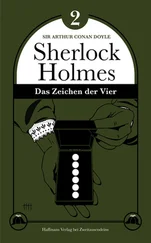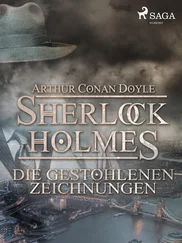It was at Chilwell that the huge bombs were filled which were destined for Berlin. There were 100 of them to be carried in twenty-five Handley Page machines. Each bomb was capable of excavating 350 tons at the spot where it fell, and in a trial trip one which was dropped in the central courtyard of a large square building left not a stone standing around it. Berlin was saved by a miracle, which she hardly deserved after the irresponsible glee with which she had hailed the devilish work of her own Zeppelins. The original hundred bombs sent to be charged had the tails removed before being sent, and when they were returned it was found to be such a job finding the right tail for the right bomb, the permutations being endless, that it was quicker and easier to charge another hundred bombs with tails attached. This and other fortuitous matters consumed several weeks. Finally, the bombs were ready and were actually on the machines in England, whence the start was to be made, when the Armistice was declared. Possibly a knowledge of this increased the extreme haste of the German delegates. Personally, I am glad it was so, for we have enough cause for hatred in the world without adding the death of 10,000 German civilians. There is some weight, however, in the contention of those who complain that Germans have devastated Belgium and France, but have never been allowed to experience in their own persons what the horrors of war really are. Still, if Christianity and religion are to be more than mere words, we must be content that Berlin was not laid in ruins at a time when the issue of the war was already decided.
Here we are at Suez once again. It would take Loti or Robert Hichens to describe the wonderful shades peculiar to the outskirts of Egypt. Deep blue sea turns to dark green, which in turn becomes the very purest, clearest emerald as it shallows into a snow-white frill of foam. Thence extends the golden desert with deep honey-coloured shadows, stretching away until it slopes upwards into melon-tinted hills, dry and bare and wrinkled. At one point a few white dwellings with a group of acacias mark the spot which they call Moses Well. They say that a Jew can pick up a living in any country, but when one surveys these terrible wastes one can only imagine that the climate has greatly changed since a whole nomad people were able to cross them.
In the Mediterranean we had a snap of real cold which laid many of us out, myself included. I recall the Lancastrian who complained that he had swallowed a dog fight. The level of our lives had been disturbed for an instant by a feud between the children and one of the passengers who had, probably quite justly, given one of them a box on the ear. In return, they had fixed an abusive document in his cabin which they had ended by the words, "With our warmest despisings," all signing their names to it. The passenger was sportsman enough to show this document around, or we should not have known of its existence. Strange little souls with their vivid hopes and fears, a parody of our own. I gave baby a daily task and had ordered her to do a map of Australia. I found her weeping in the evening. "I did the map," she cried, between her sobs, "but they all said it was a pig!" She was shaken to the soul at the slight upon her handiwork.
It was indeed wonderful to find ourselves at Marseilles once more, and, after the usual unpleasant douane formalities, which are greatly ameliorated in France as compared to our own free trade country, to be at temporary rest at the Hôtel du Louvre.
A great funeral, that of Frederic Chevillon and his brother, was occupying the attention of the town. Both were public officials and both were killed in the war, their bodies being now exhumed for local honour. A great crowd filed past with many banners, due decorum being observed save that some of the mourners were smoking cigarettes, which "was not handsome," as Mr. Pepys would observe. There was no sign of any religious symbol anywhere. It was a Sunday and yet the people in the procession seemed very badly dressed and generally down-at-heel and slovenly. I think we should have done the thing better in England. The simplicity of the flag-wrapped coffins was however dignified and pleasing. The inscriptions, too, were full of simple patriotism.
I never take a stroll through a French town without appreciating the gulf which lies between us and them. They have the old Roman civilisation, with its ripe mellow traits, which have never touched the Anglo-Saxon, who, on the other hand, has his raw Northern virtues which make life angular but effective. I watched a scene to-day inconceivable under our rule. Four very smart officers, captains or majors, were seated outside a café. The place was crowded, but there was room for four more at this table on the sidewalk, so presently that number of negro privates came along and occupied the vacant seats. The officers smiled most good humouredly, and remarks were exchanged between the two parties, which ended in the high falsetto laugh of a negro. These black troops seemed perfectly self-respecting, and I never saw a drunken man, soldier or civilian, during two days.
I have received English letters which announce that I am to repeat my Australian lectures at the Queen's Hall, from April 11th onwards. I seem to be returning with shotted guns and going straight into action. They say that the most dangerous course is to switch suddenly off when you have been working hard. I am little likely to suffer from that.
Table of Contents
The Institut Metaphysique.—Lecture in French.—Wonderful musical improviser.—Camille Flammarion.—Test of materialised hand.—Last ditch of materialism.—Sitting with Mrs. Bisson's medium, Eva.—Round the Aisne battlefields.—A tragic intermezzo.—Anglo-French Rugby match.—Madame Blifaud's clairvoyance.
One long stride took us to Paris, where, under the friendly and comfortable roof of the Hôtel du Louvre, we were able at last to unpack our trunks and to steady down after this incessant movement. The first visit which I paid in Paris was to Dr. Geley, head of the Institut Metaphysique, at 89, Avenue Niel. Now that poor Crawford has gone, leaving an imperishable name behind him, Geley promises to be the greatest male practical psychic researcher, and he has advantages of which Crawford could never boast, since the liberality of Monsieur Jean Meyer has placed him at the head of a splendid establishment with laboratory, photographic room, lecture room, séance room and library, all done in the most splendid style. Unless some British patron has the generosity and intelligence to do the same, this installation, with a man like Geley to run it, will take the supremacy in psychic advance from Britain, where it now lies, and transfer it to France. Our nearest approach to something similar depends at present upon the splendid private efforts of Mr. and Mrs. Hewat MacKenzie, in the Psychic College at 59, Holland Park, which deserve the support of everyone who realises the importance of the subject.
I made a faux pas with the Geleys, for I volunteered to give an exhibition of my Australian slides, and they invited a distinguished audience of men of science to see them. Imagine my horror when I found that my box of slides was in the luggage which Major Wood had taken on with him in the "Naldera" to England. They were rushed over by aeroplane, however, in response to my telegram, and so the situation was saved.
The lecture was a private one and was attended by Mr. Charles Richet, Mr. Gabrielle Delanne, and a number of other men of science. Nothing could have gone better, though I fear that my French, which is execrable, must have been a sore trial to my audience. I gave them warning at the beginning by quoting a remark which Bernard Shaw made to me once, that when he spoke French he did not say what he wanted to say, but what he could say. Richet told me afterwards that he was deeply interested by the photographs, and when I noted the wonder and awe with which he treated them—he, the best known physiologist in the world—and compared it with the attitude of the ordinary lay Press, it seemed a good example of the humility of wisdom and the arrogance of ignorance. After my lecture, which covered an hour and a quarter, we were favoured by an extraordinary exhibition from a medium named Aubert. This gentleman has had no musical education whatever, but he sits down in a state of semi-trance and he handles a piano as I, for one, have never heard one handled before. It is a most amazing performance. He sits with his eyes closed while some one calls the alphabet, striking one note when the right letter sounds. In this way he spells out the name of the particular composer whom he will represent. He then dashes off, with tremendous verve and execution, upon a piece which is not a known composition of that author, but is an improvisation after his manner. We had Grieg, Mendelssohn, Berlioz and others in quick succession, each of them masterly and characteristic. His technique seemed to my wife and me to be not inferior to that of Paderewski. Needles can be driven through him as he plays, and sums can be set before him which he will work out without ceasing the wonderful music which appears to flow through him, but quite independently of his own powers or volition. He would certainly cause a sensation in London.
Читать дальше












